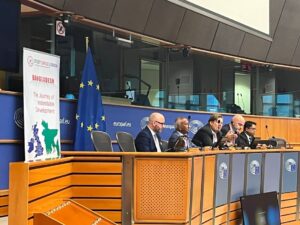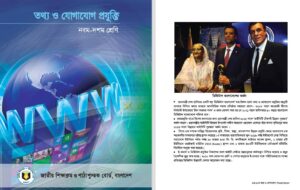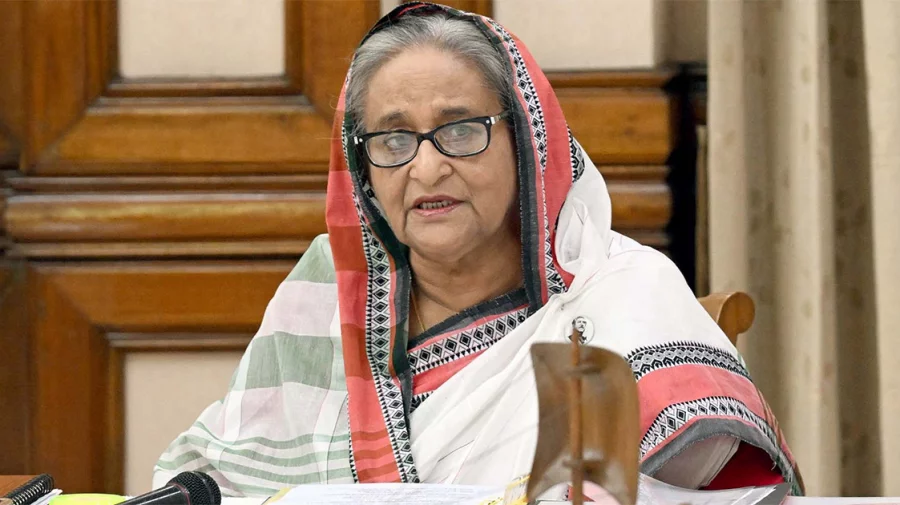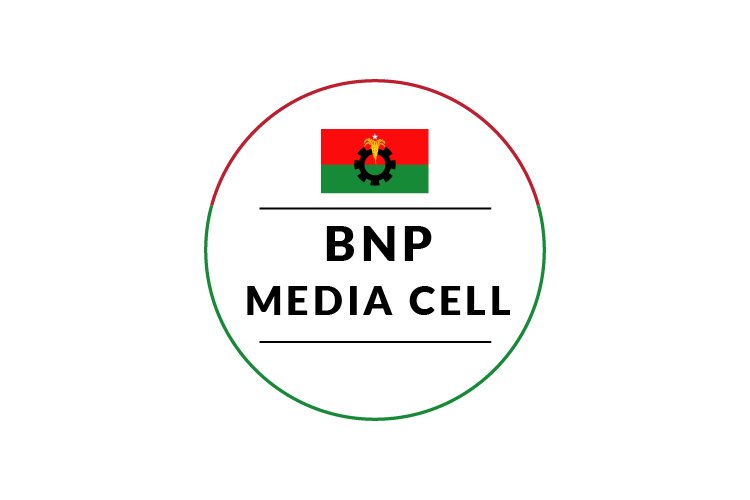A general election is expected in Bangladesh this winter, but if it is anything like the last two elections, most Bangladeshis are not expected to vote. The election in January 2014 was boycotted by the main opposition, who feared widespread rigging. The ruling Awami League attained a majority before the election day as 153 of 300 seats were declared uncontested for them. Fears of rigging notwithstanding, the opposition did participate in December 2018. Perhaps they shouldn’t have, as across the country, ballot boxes were stuffed the night before the polling day.
The government of Sheikh Hasina, in power since 2008, has swapped democratic affirmation by voters with a reliance on security agencies who indulge in rampant human rights violations —extrajudicial killings, enforced disappearances and such like. Further, dissenters and human rights activists —for example, Adilur Rahman Khan —have been jailed on trumped-up charges.
Hasina shows every intention of staying in power come what may, describing her party as the only legitimate one in an interview with the Economist magazine earlier this year. One wrinkle in her plans, however, is the fact that the world has started to take notice.
In December 2021, the Biden Administration slapped sanctions against senior officers of police and paramilitary forces for human rights violations. These have been followed up with visa bans that would apply to anyone trying to impede a free and fair election in Bangladesh. Further, Bangladesh’s democratic backsliding in general, and worsening human rights situation in particular, has been discussed in legislatures and the executive branches from Brussels to Canberra. The European Parliament, for example, adopted a resolution in September that specifically deplored prison sentences against Adilur Rahman Khan and his colleague. Meanwhile, Russia, China, and Iran have come out publicly in favour of the regime, dubbing liberal democracies’ concerns about human rights abuses in Bangladesh as ‘meddling in internal affairs’.
The Hasina regime is not unaware of the drubbing its global image is taking and singles out human rights NGOs in Bangladesh as a primary culprit in creating such humiliations.
As part of the countering strategies, the government has reportedly sought out writers, academics and content creators over the past year to drum up favourable opinion pieces and events that could be reported in global media.
For example, a seminar in Brussels (or any other Western capital), attended by high-profile MEPs or European Commission officials (or their peers in other democracies), with a robust defence of the regime’s governance records and credible arguments that the accusation of human rights abuses are propaganda —such an event would presumably support the regime’s counteroffensive against human rights groups in Bangladesh, quite effectively.
And indeed, exactly such an event — titled ‘Human Rights Situation and Democracy in Bangladesh: the Fight against Disinformation and False Narratives’ — did take place on 11 October in Brussels in one of the EU buildings, except it didn’t quite go right!
To make matters worse for the public image of the Hasina regime, the event was hosted and helmed by MEP Maximilian Krah. Mr Krah, of course, belongs to the notorious far-right Alternative for Germany (AfD) party, and has been accused of fraud and influence peddling from Beijing. MEP Krah’s case on contract fraud has been transferred to the European Public Prosecutor’s Office and is undergoing criminal investigations. Moreover, typical of a far-right European politician, Mr Krah has been consistently expressing strong opposition to core progressive issues like immigration, gender equity policies, and climate change mitigation.

The event was sparsely attended, as evidenced by photos of the audience. Dr Raihan Rashid, one of the panellists at the seminar, suggested EU parliamentarians to “do their own homework” when it comes to human rights allegations from Bangladesh. However, it is unclear whether he is credible when it comes to judicial transparency in Bangladesh due to his involvement in the notorious Skype scandal in 2012. This was when the Chief Justice of the International Crimes Tribunal of Bangladesh was exposed for having Skype conversations with Dr Ziauddin Ahmed, a Belgium-based international humanitarian lawyer, about the cases and verdicts against the alleged war criminals. The conversation revealed Raihan Rashid’s involvement in the unlawful affair as well.
The Skype scandal undermined the legitimacy of the War Crimes Tribunal and put the Bangladesh government in a difficult position at that time. The judge had to resign amid the controversy. The controversy would have been enough to result in a mistrial in most jurisdictions, but not in Bangladesh. Curiously, among the few attendees of the event, there seems to be a high concentration of Bangladeshis who prominently advocated for the War Crimes Tribunal in the past, including names such as Syed Mozammel Ali and Jamal Ahmed Khan, in addition to Dr Raihan.
Pause and think about it for a moment. A Beijing-linked far right European politician hosts an event attended by people known to have been involved in a controversial trial process where the said event is supposed to highlight how the concerns about human rights abuses in Bangladesh reflect disinformation and false narrative.
A further icing on the cake of irony is that, during the controversial war crimes trial in Bangladesh, panellist-organizers such as Rashid and Jamal Khan, who are now seeking the patronage of a German far-right politician, used to continuously promote the Bangladeshi tribunal as similar to the Nuremberg Trials and depict the accused as akin to Nazi war criminals.
Even a maestro like Mikhail Bulgakov couldn’t have come up with this stuff!
As it happens, the Hasina regime seems to have a penchant for getting suckered by propaganda that backfires. For example, hundreds of articles popped up in the English language global media praising the government in the past year, but the authors were subsequently found to be completely made up. A massive disinformation campaign of fake experts and authors to fool the world and the country, except the campaign was so incompetent that the non-existence of the authors got discovered quite easily by an AFP investigation.
Or consider the time when Prime Minister Sheikh Hasina and her son (also an official adviser to the PM) Sajeeb Wazed Joy, took part in an elaborate con run by a notorious Chinese fraudster Cary Yan in the USA in 2016. Mr Yan — later convicted for bribing elected officials in the strategically important Republic of the Marshall Island as part of a Chinese influence-gathering operation — set up a shell organization called World Organization of Governance and Competitiveness (WOGC) that managed to affiliate itself with the United Nations offices in the US. In September 2016, as part of WOGC’s glitzy public launching process, Mr Yan hosted an expensive ceremony where Sheikh Hasina was the keynote speaker and Sajib Wazed Joy was honoured with an ICT for Development Award. The whole thing has been included in school curriculum as a signal achievement of the regime!

Photo of Sheikh Hasina and her son getting fake IT Award in Grade Nine-Ten Textbook
Undaunted with the exposes, fiascos and debacles, the regime is proceeding with a programme to train six hundred thousand online activists in order to flood domestic and global media with regime-friendly propaganda. Yet another embarrassment is highly likely.
Perhaps the Hasina regime’s apparatchik really does share an ideological affinity with far‑right European politicians and agents of the Chinese Communist Party. Or perhaps the regime is so incompetent that it can’t even organize propaganda properly, and corruption is so entrenched that there is no honour among thieves. Whatever it is, things are quite rotten in Sheikh Hasina’s Bangladesh, and that’s just not right for the regime and the country.


